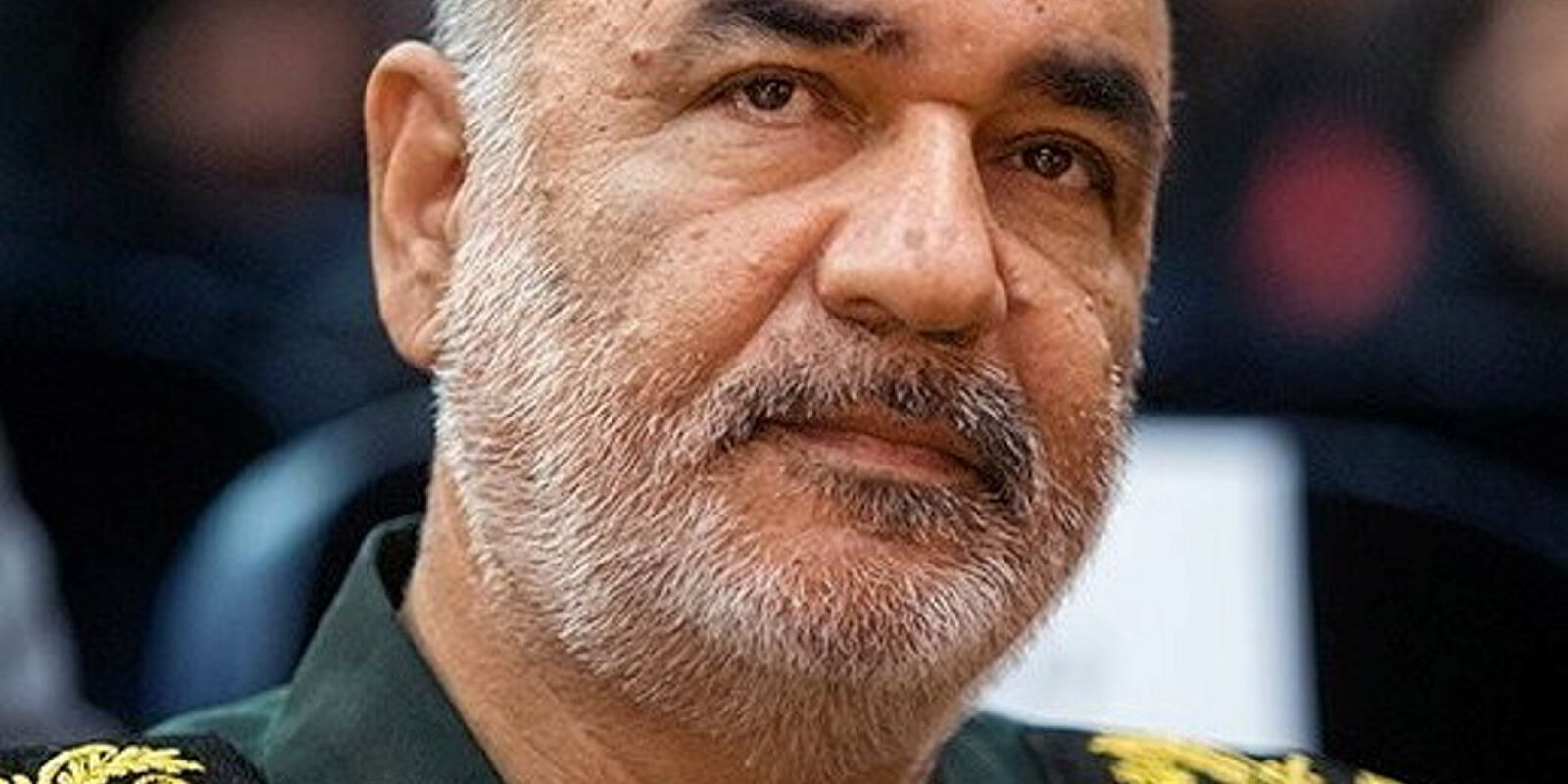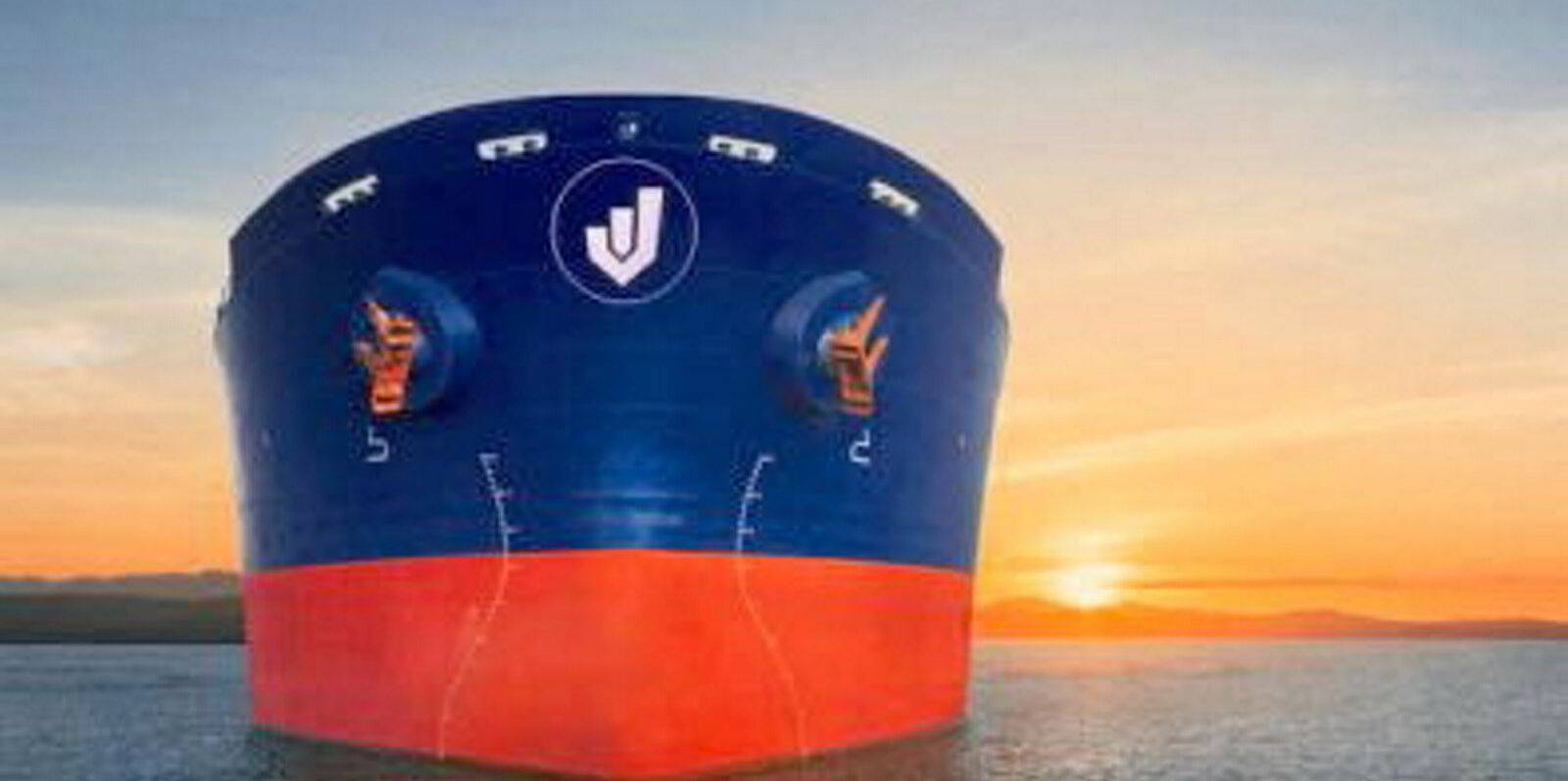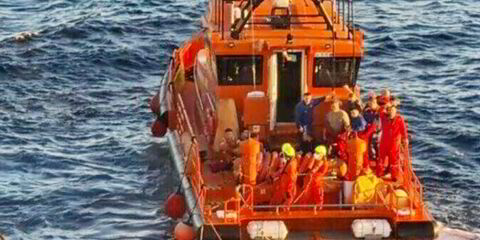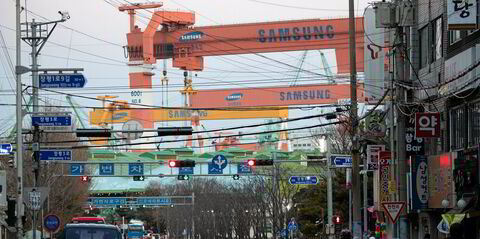A leading Iranian military leader has made a series of outspoken claims about “hitting” Israeli vessels and the “surrender” of Western governments in its ongoing proxy battles over oil and sanctions on the world’s seas.
Major General Hossein Salami, chief commander of the Islamic Revolution Guards Corps (IRGC), told Press TV that his country had “hit” more than 12 Israeli vessels after the Israeli government targeted Iranian tankers in international waters.
A series of unexplained explosions have taken place on Israeli-controlled ships, or formerly Israeli-owned vessels, in recent years, pre-dating the current Red Sea turmoil.
The West blamed these on Iran.
Similarly, Iran blamed Israel for explosions on its own vessels.
Salami said: “They [Israelis] hit 14 of our ships in order to choke off the export of crude oil. Initially, we did not know which party was responsible for the attacks as they were being conducted mysteriously.
“Finally, we discovered that the Zionist regime was accountable for them and 12 of their ships were hit.”
“Once their fifth ship was hit, they held up their hands and called for the cessation of the ship war,” he added.
He then referred to tit-for-tat seizures of UK, US and Iranian tankers arising from sanctions on Iranian oil.
Salami said the UK “surrendered” in 2019 when Iran seized Stena Bulk’s UK-flagged tanker Stena Impero in the Middle East Gulf following the UK’s detention of an Iranian tanker off Gibraltar.
And he continued: “They took two ships from us in Greece, we took two ships from them and finally they surrendered.”
Simulated operation
“When our two oil tankers headed to Venezuela, the Americans threatened to seize the two oil tankers. I myself and [IRGC Navy Rear Admiral Alireza] Tangsiri simulated the operation of seizing an American oil tanker and announced it on a radio call. When the Americans saw it, our tankers reached their destination safely,” the commander said.
And Salami added: “We successfully managed to shut off all the openings that the enemy had created. The safest shipping lanes now belong to those vessels carrying the Iranian flag.”
In July, Iran released the oil cargo on a Greek tanker seized in January.
In a relatively unusual move, a ship-to-ship transfer was carried out from the Stamatis Molaris-owned 158,600-dwt St Nikolas (ex-Suez Rajan, built 2011).
The 1m-barrel cargo of Iraqi crude was shifted to a Turkish tanker on behalf of Turkish refiner Tupras.
Earlier that month, an Advantage Tankers suezmax seized 15 months previously by Iranian forces finally sailed to freedom.
The Chevron-chartered 159,100-dwt Advantage Sweet (built 2012) was boarded in April last year as Iran took control of its $51m crude cargo.
It was one of several vessels captured by Iranian forces in retaliatory battles over US sanctions that were reimposed in 2018 by former US president Donald Trump.
The US said in January that Iran was holding five ships and more than 90 crew members hostage from vessels seized in 2023.
Five days before the seizure of the Advantage Sweet, the US seized and later sold more than 980,000 barrels of Iranian crude on board the Suez Rajan.
After this ship discharged its cargo in Texas, it returned to the Middle East under the new name of St Nikolas.
When it arrived in Oman, Iranian forces hijacked the ship and have held it since.





